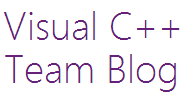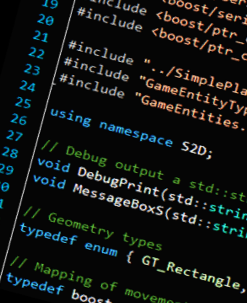New paper: N3733, ISO/IEC CD 14882, C++ 2014, National Body Comments -- Barry Hedquist
A new WG21 paper is available. A copy is linked below, and the paper will also appear in the next normal WG21 mailing. If you are not a committee member, please use the comments section below or the std-proposals forum for public discussion.
Document number: N3733
Date: 2013-08-26
ISO/IEC CD 14882, C++ 2014, National Body Comments
by Barry Hedquist, INCITS/PL22.16 IR
Excerpt:
Attached is a complete set of National Body Comments submitted to JTC1 SC22 in response to the SC22 Ballot for ISO/IEC CD 14882, Committee Draft of the revision of ISO/IEC 14882:2011, aka C++ 2014.
This document is a revision to SC22 N4836, CD14882 Collated Comments. The revision contains a consistent numbering scheme for all comments. Comments that contained no numbering were numbered sequentially in the exact order presented in SC22 N4836. Comments that were numbered in the "Line Number" column (column 2) were moved to the MB/NC column (column 1). No other editing was done on any of the comments.
Document numbers referenced in the ballot comments are WG21 documents unless otherwise stated.

 We keep hearing about C++'s "as if" rule, but what does it really do? Fundamentally, it enables optimizations. A modern compiler never produces an executable that's identical to the program you actually wrote; it produces an equivalent program that's probably a lot better.
We keep hearing about C++'s "as if" rule, but what does it really do? Fundamentally, it enables optimizations. A modern compiler never produces an executable that's identical to the program you actually wrote; it produces an equivalent program that's probably a lot better. A nice piece of writing on a C++11 feature:
A nice piece of writing on a C++11 feature: Here is a nicely accessible description of synchronization in the C++ memory model:
Here is a nicely accessible description of synchronization in the C++ memory model: On CRTP with multi-level inheritance, cloning, and the constructor forwarding problem.
On CRTP with multi-level inheritance, cloning, and the constructor forwarding problem. Today on Dr. Dobb's:
Today on Dr. Dobb's: A slight change from C++98 to C++11, tightening up destructor semantics. Yes, it's still considered a best practice to never allow an exception to escape from a destructor -- in any language with destructor or
A slight change from C++98 to C++11, tightening up destructor semantics. Yes, it's still considered a best practice to never allow an exception to escape from a destructor -- in any language with destructor or  A look at resumable functions:
A look at resumable functions: